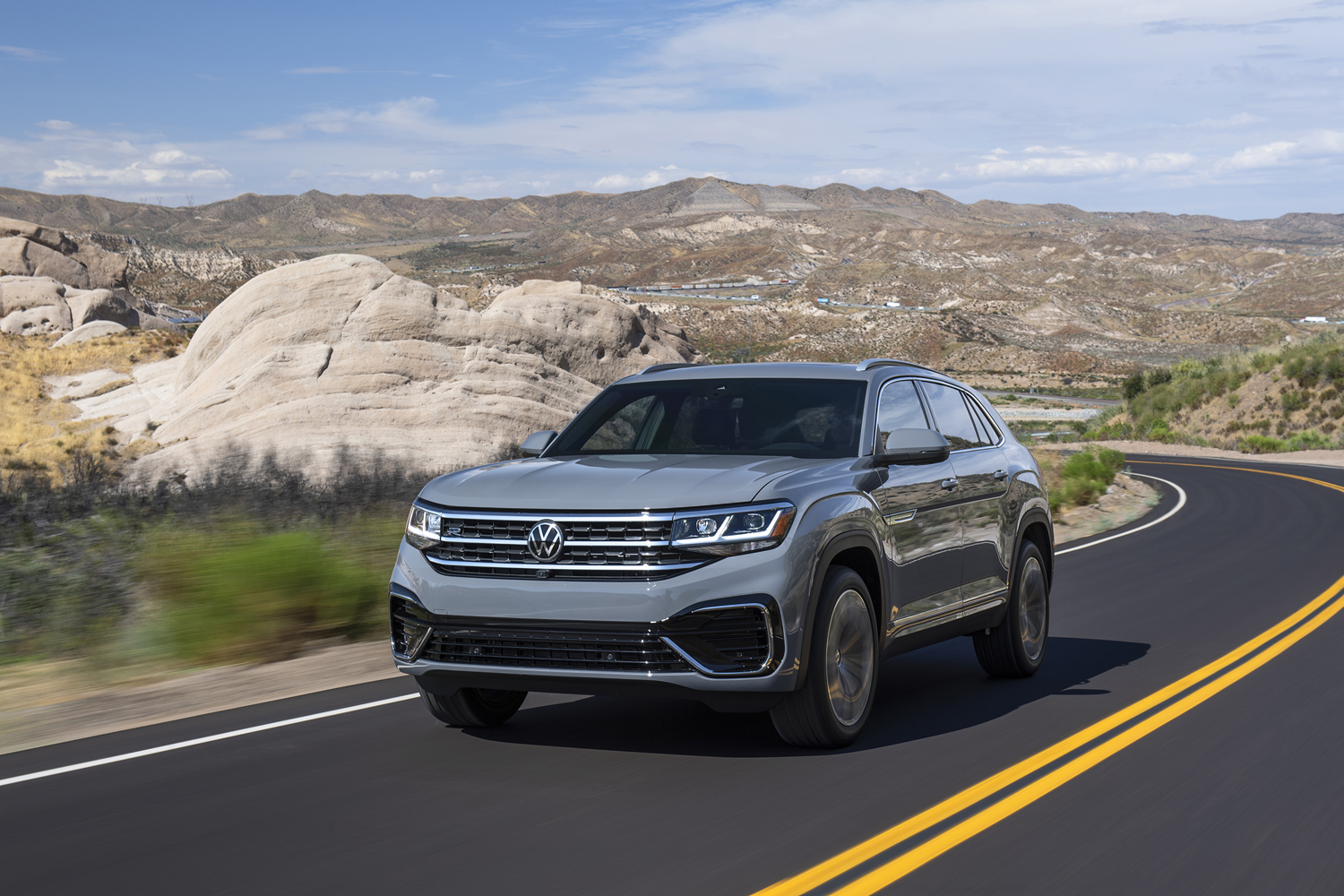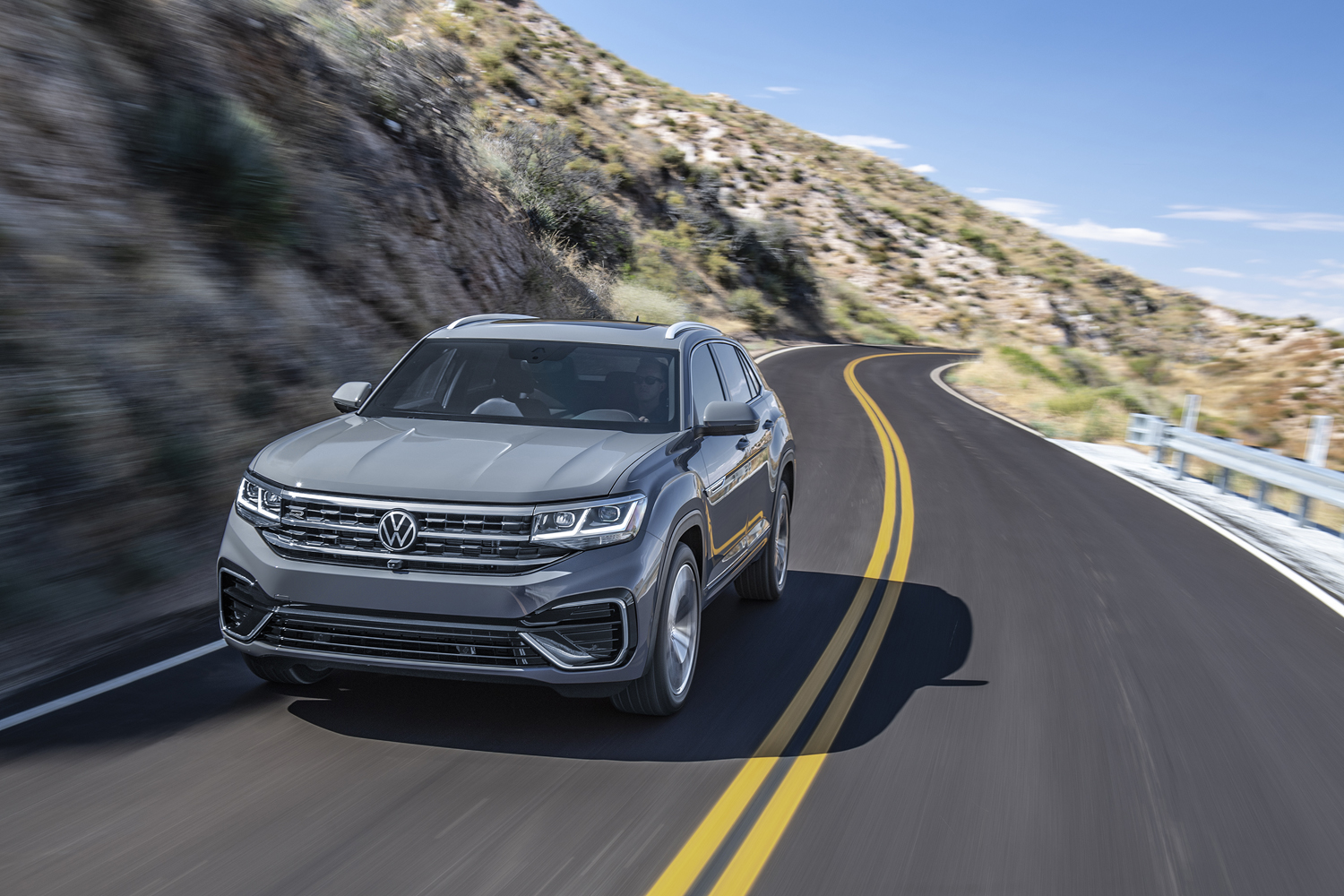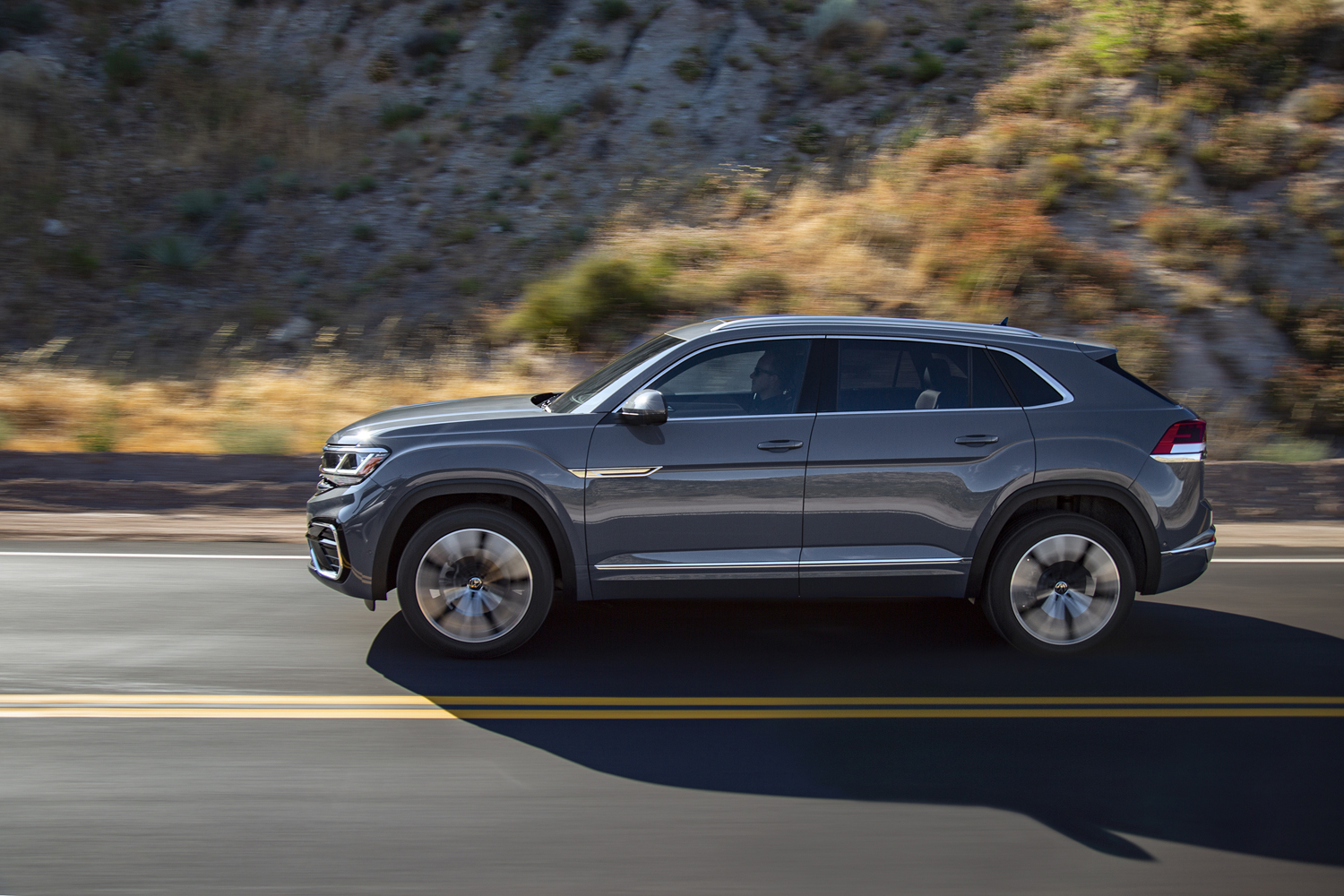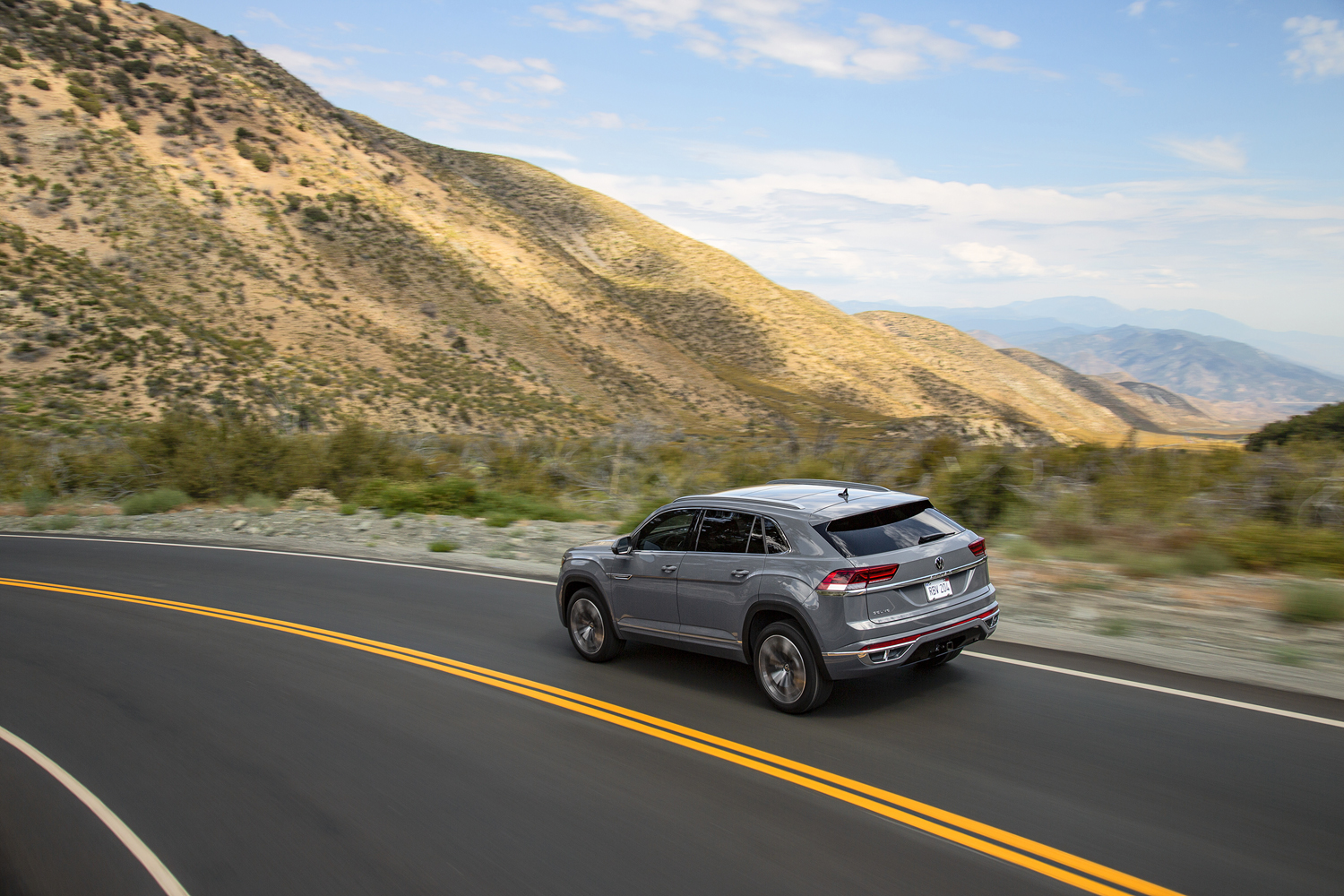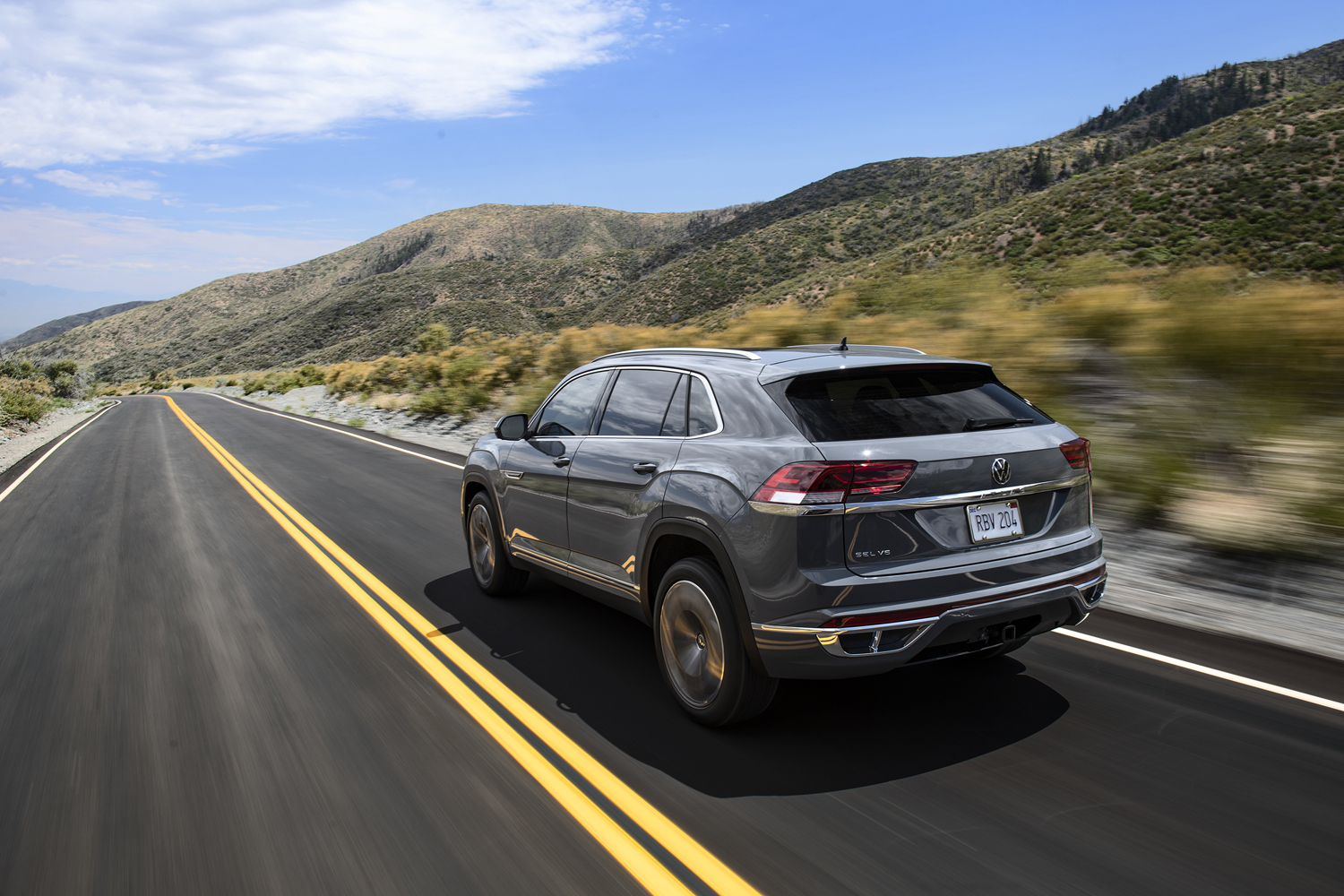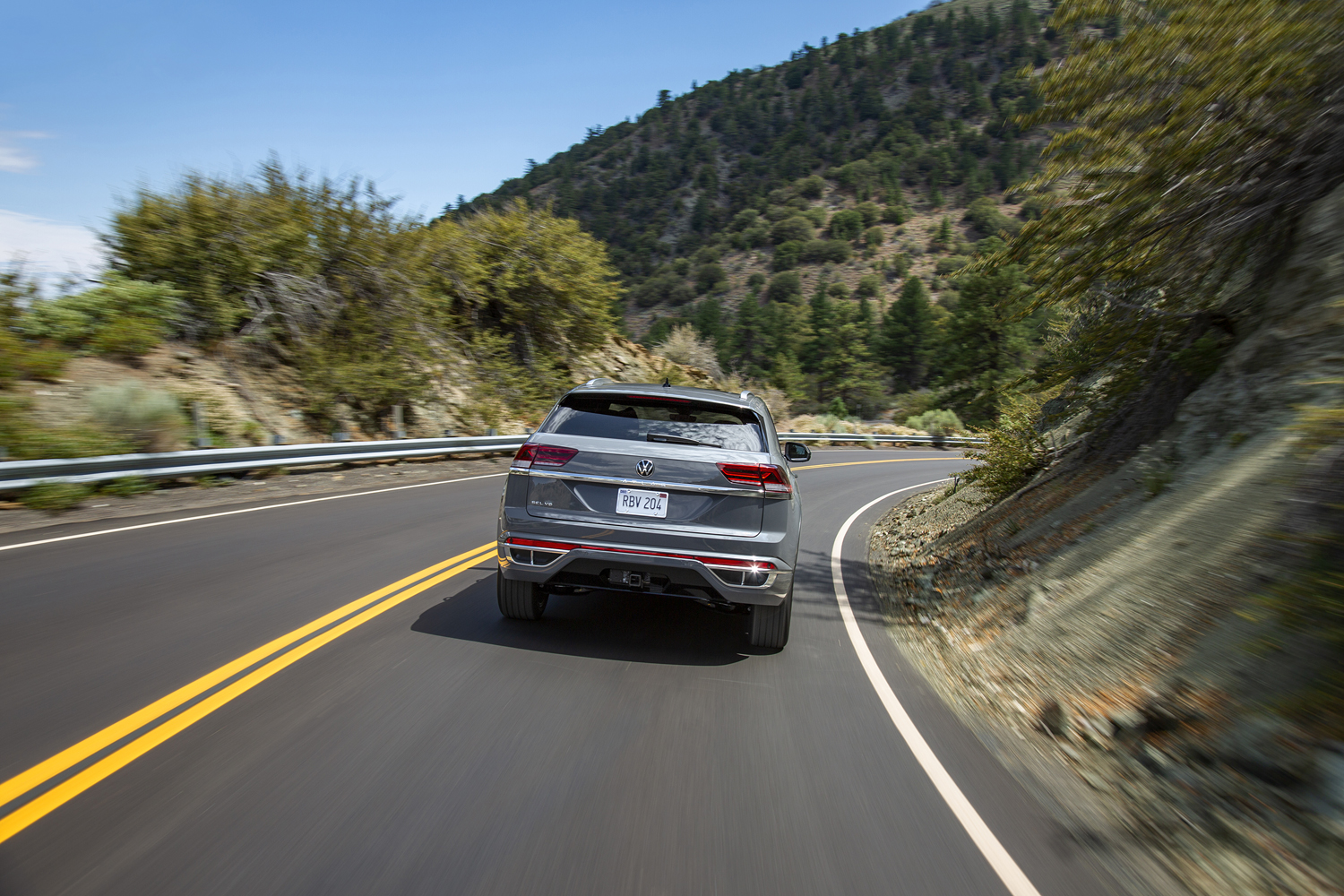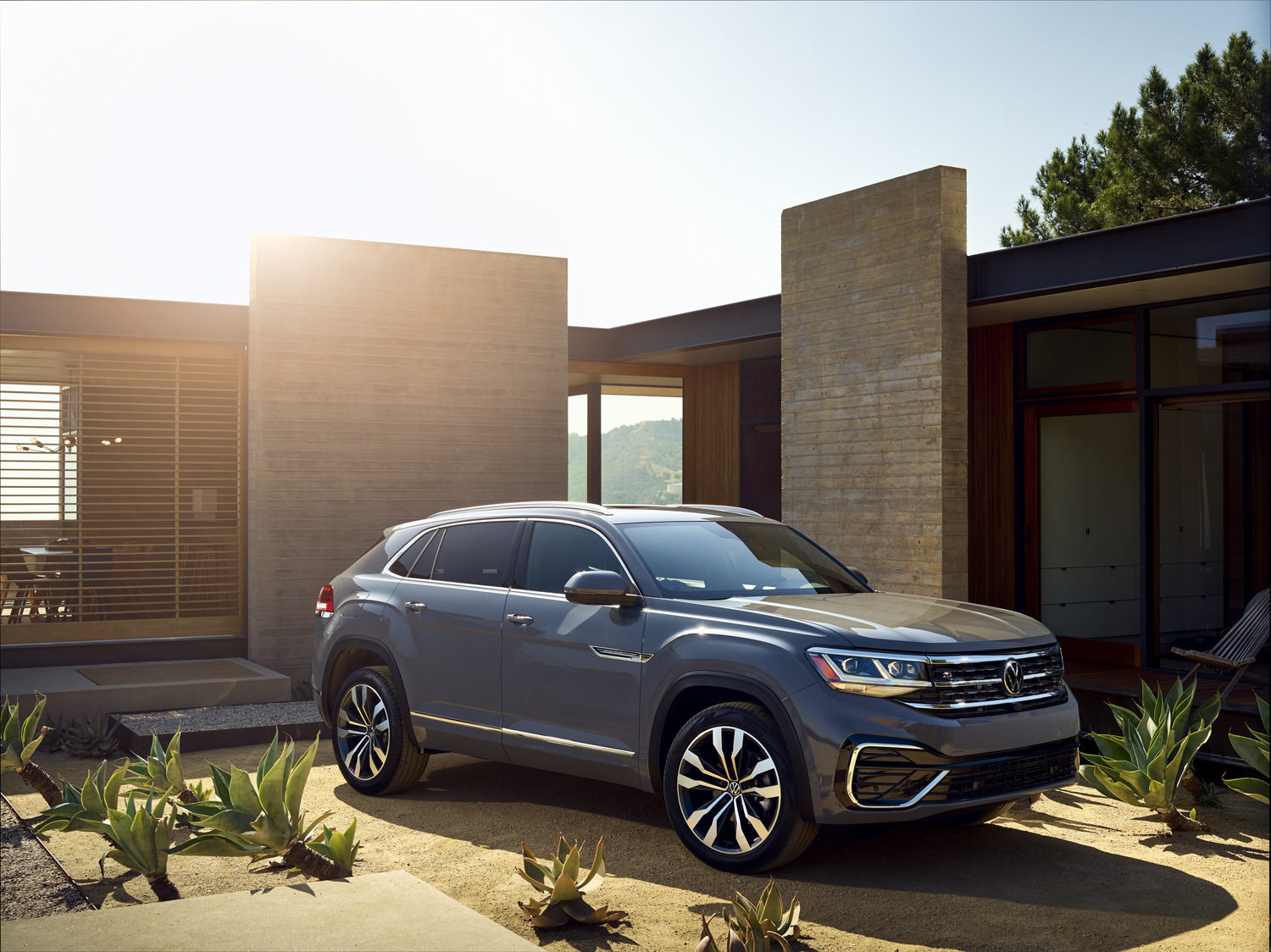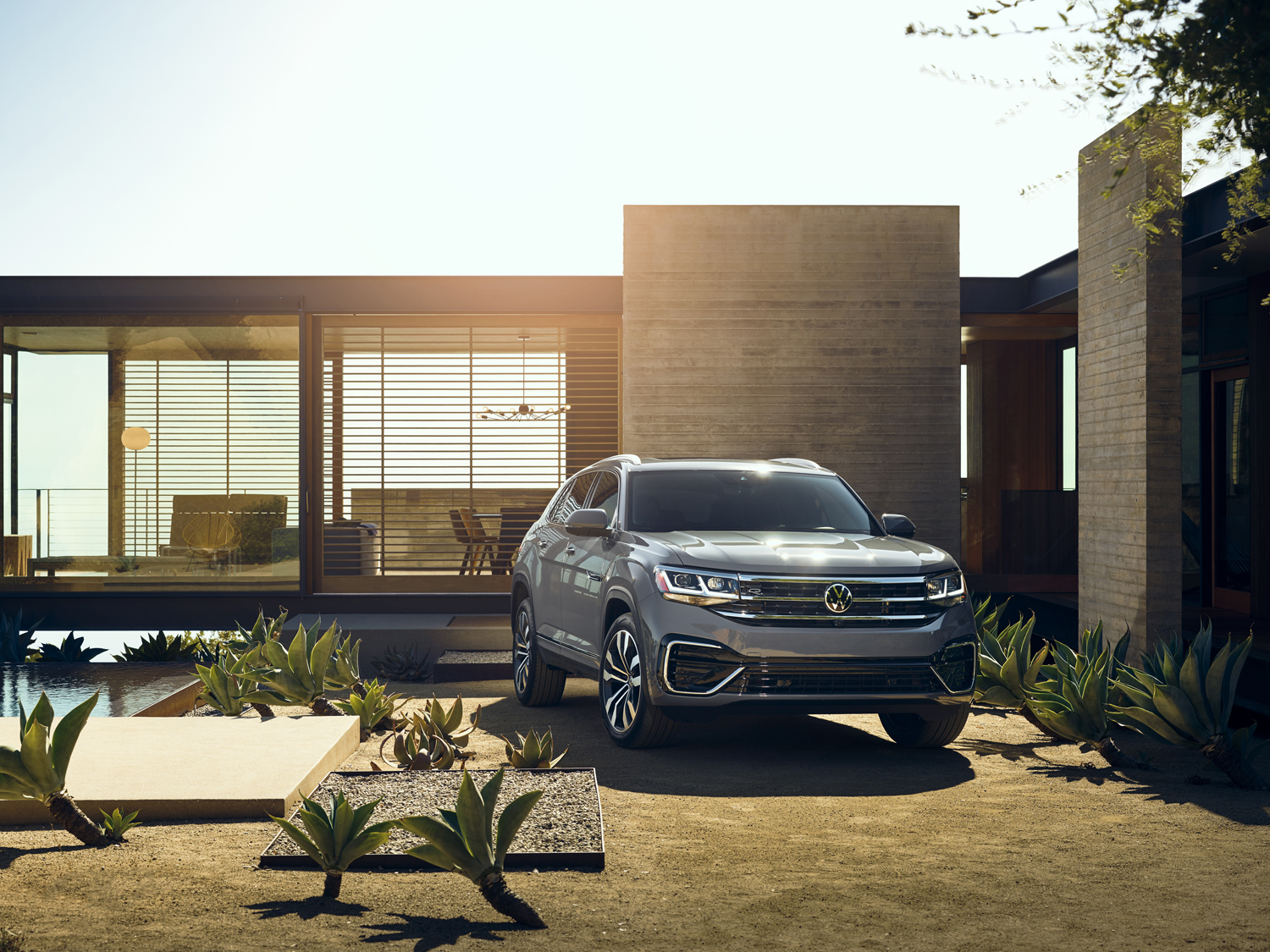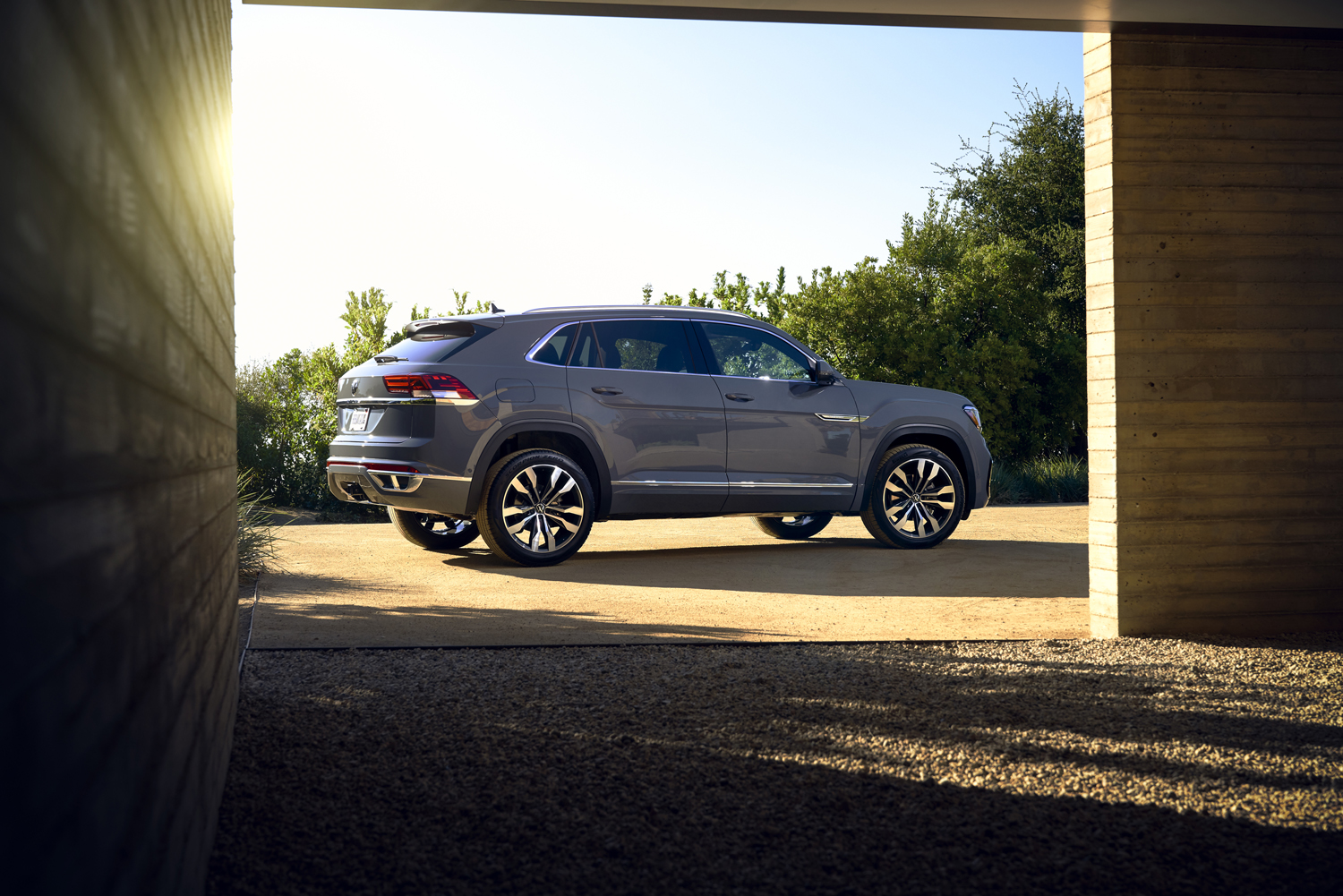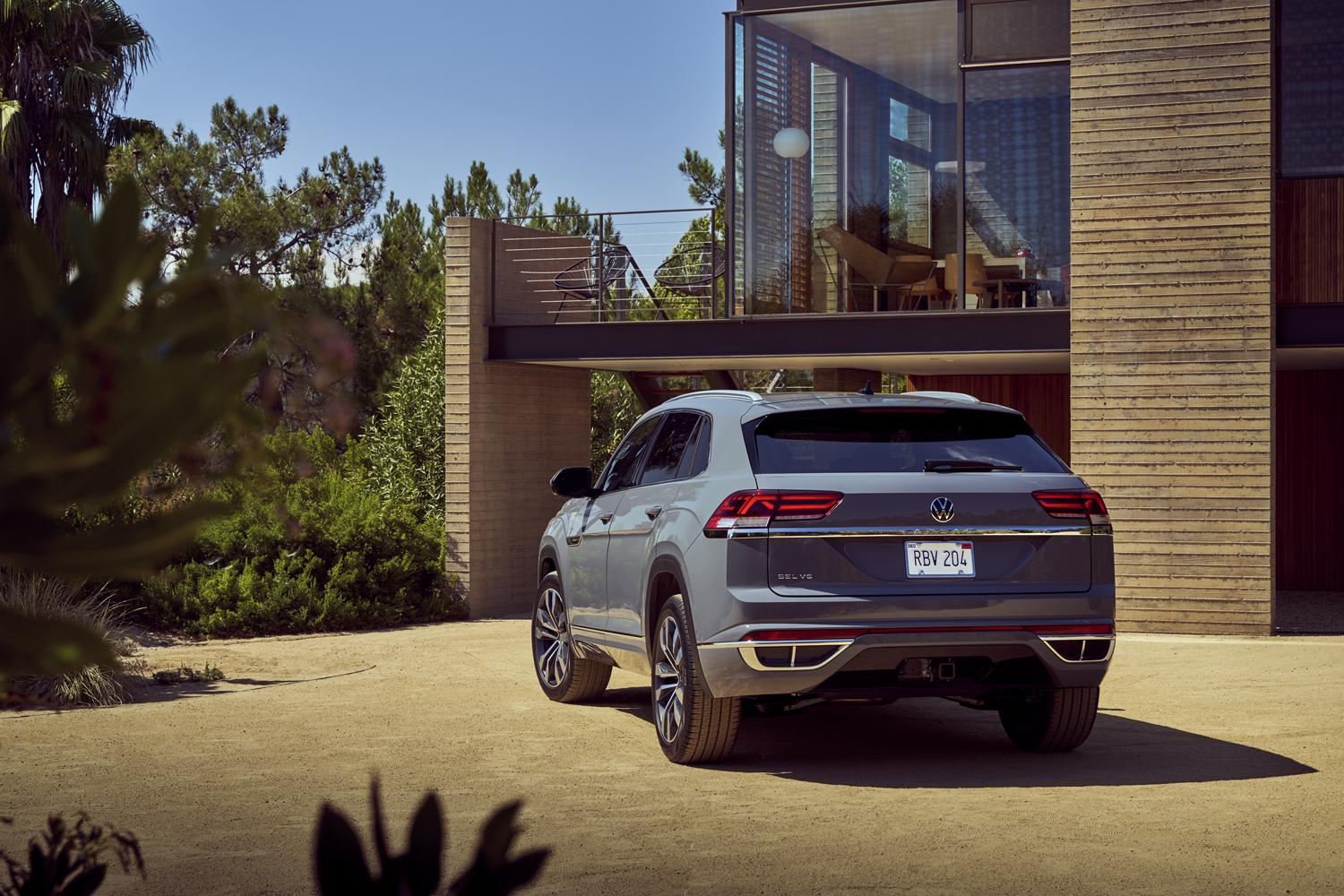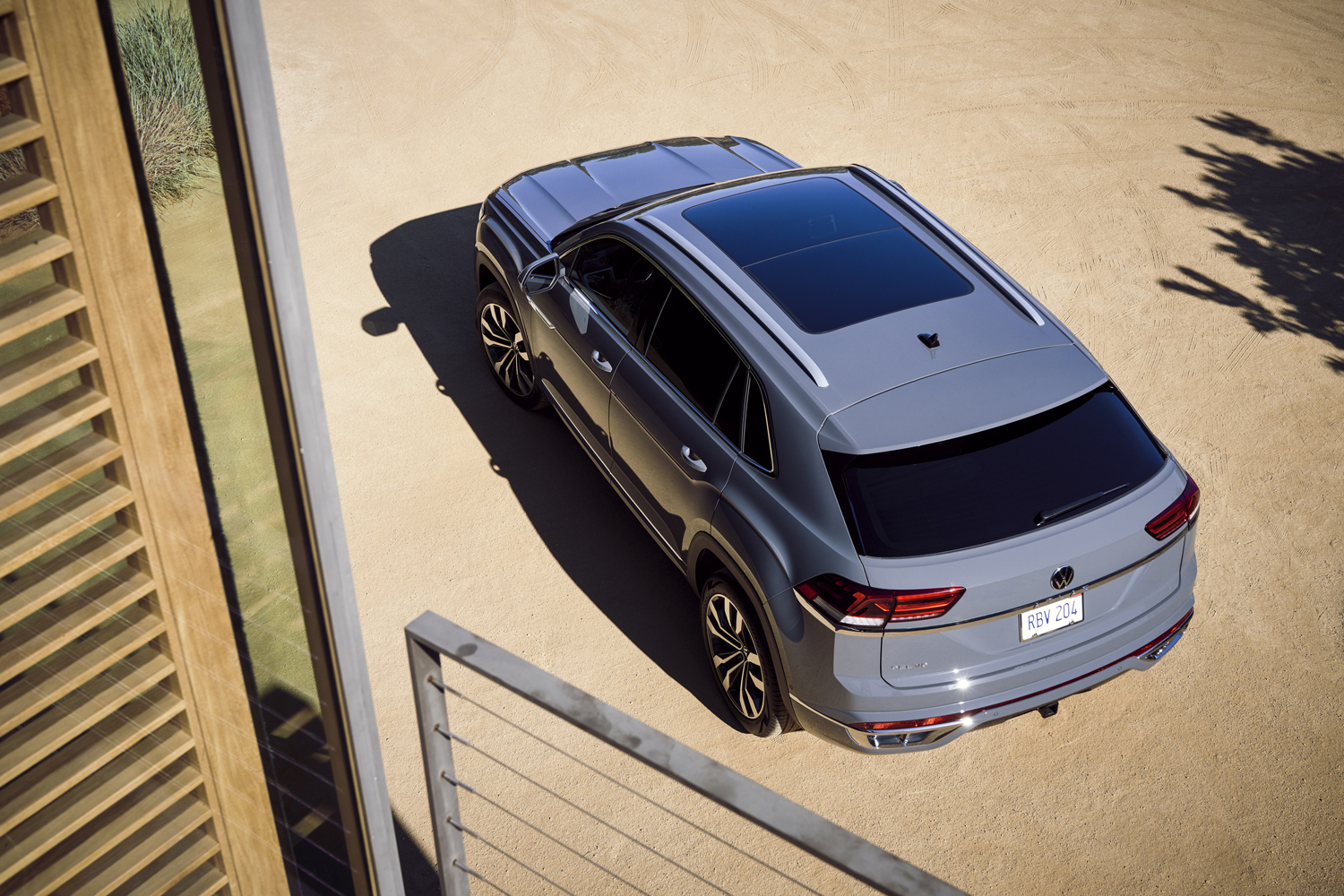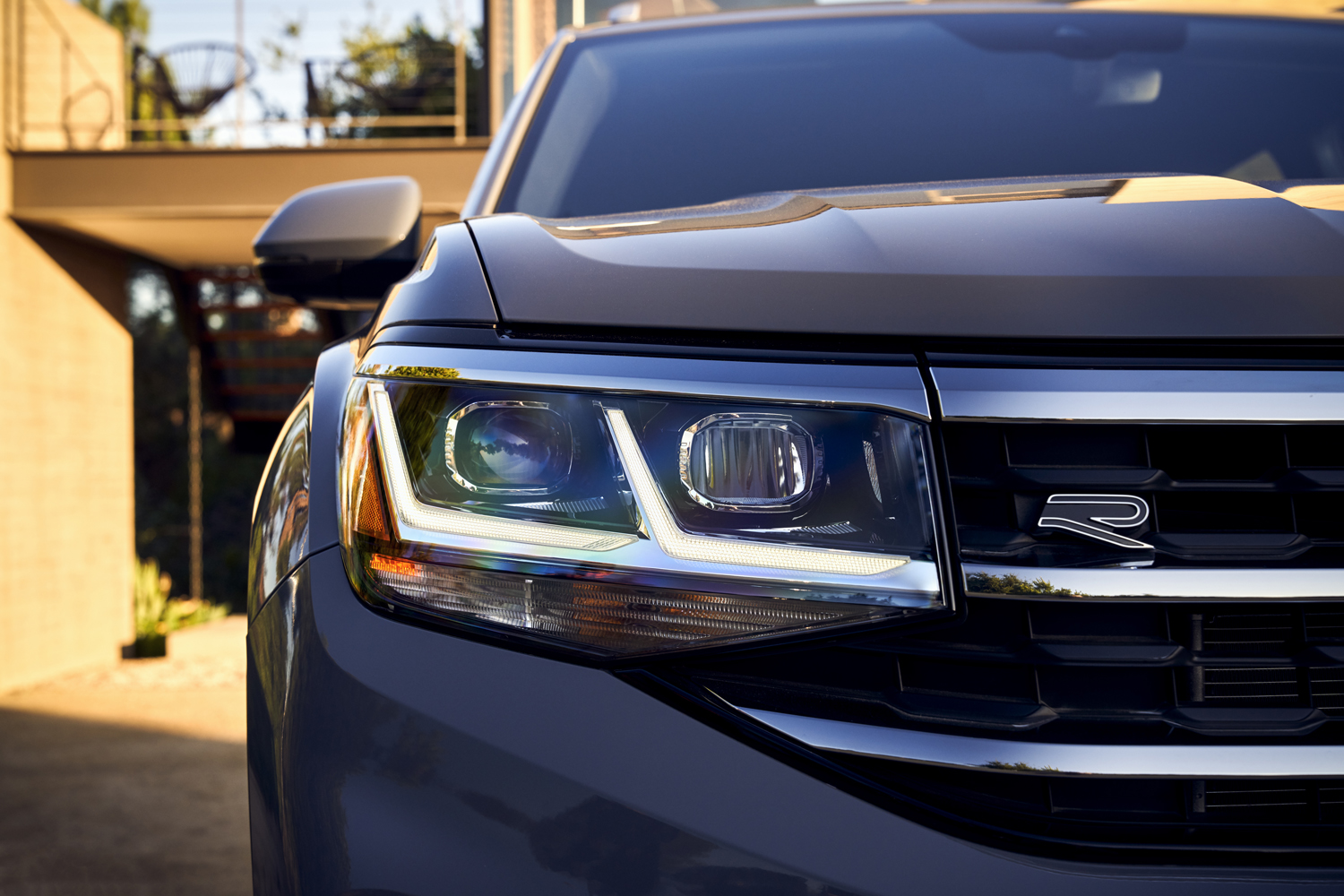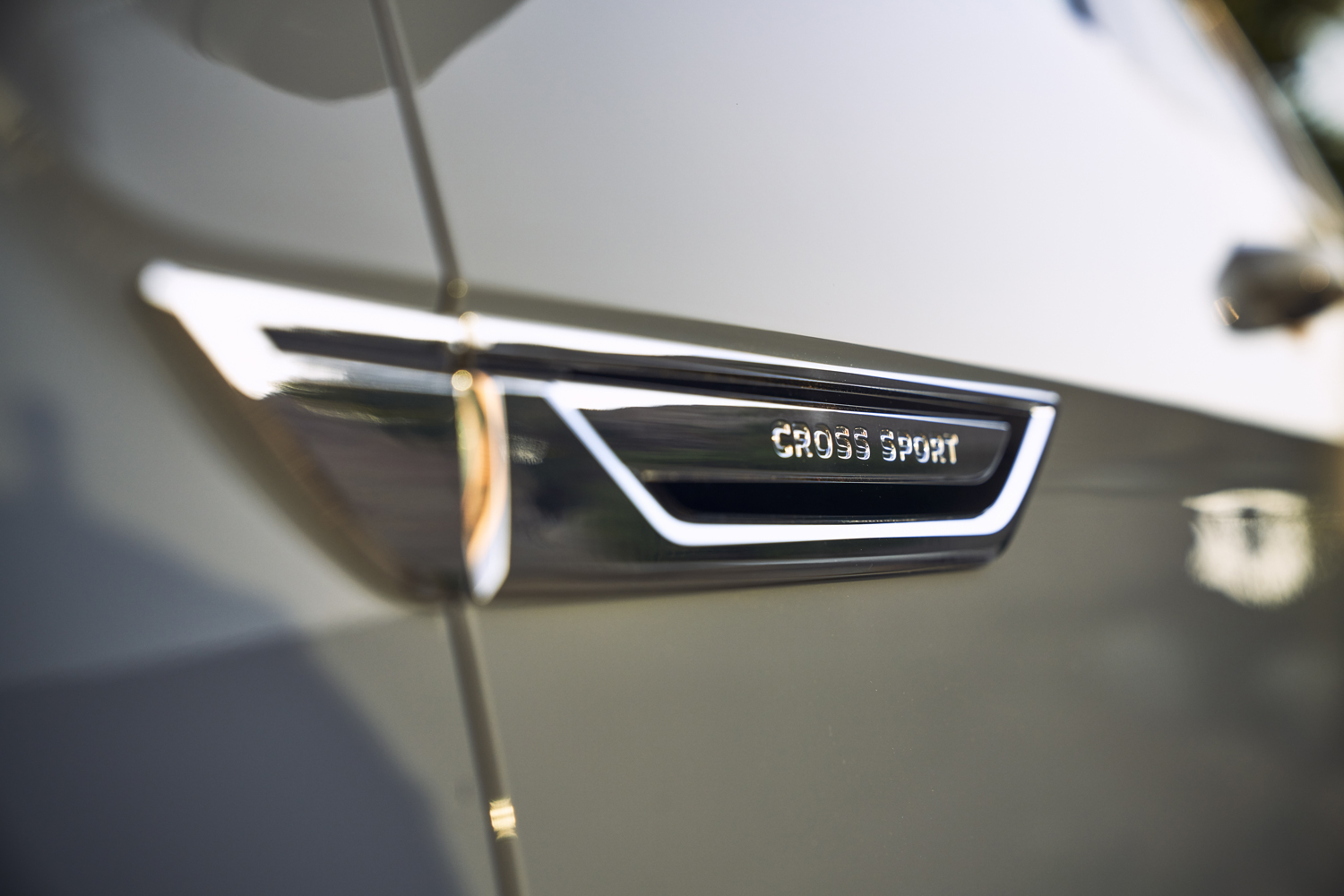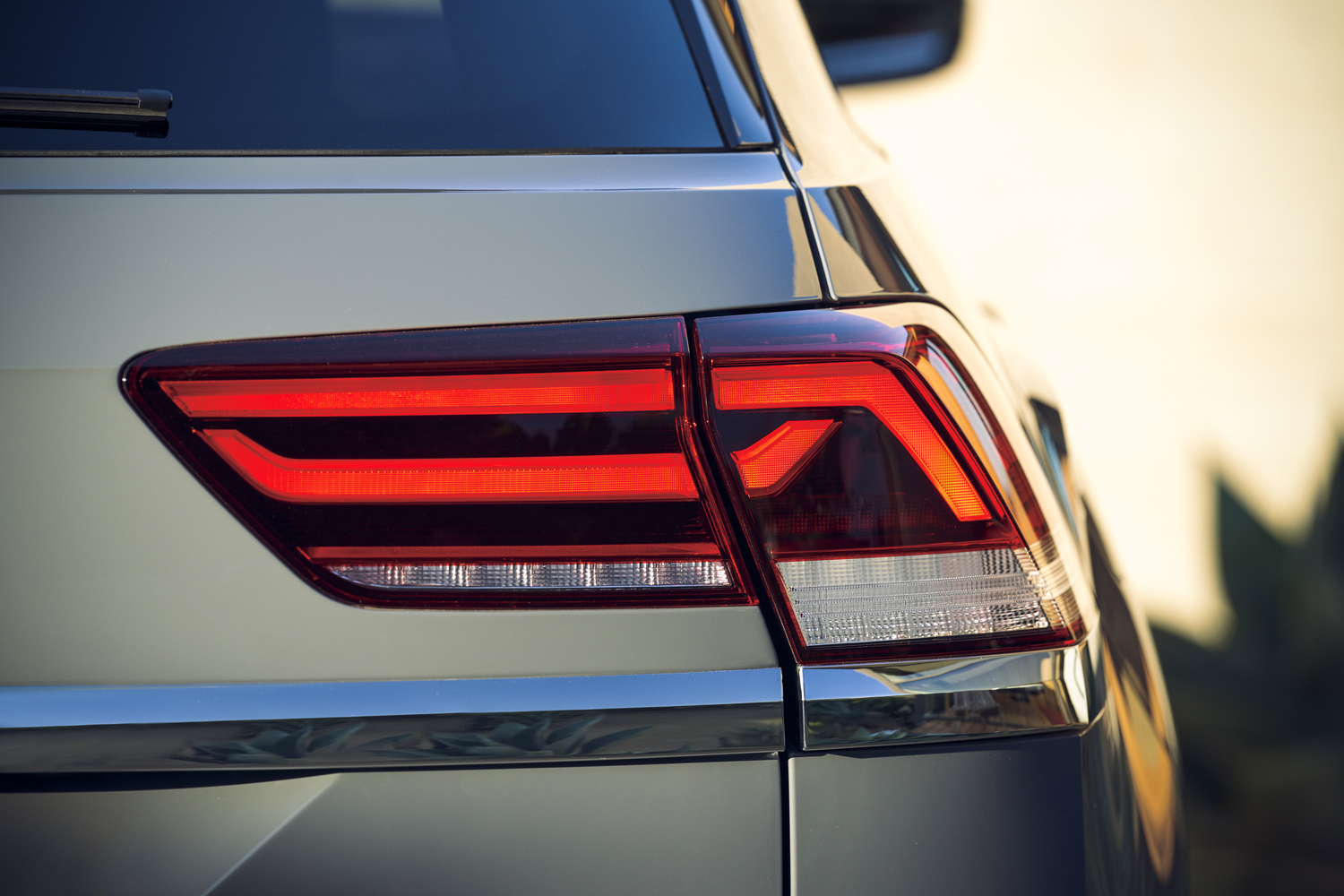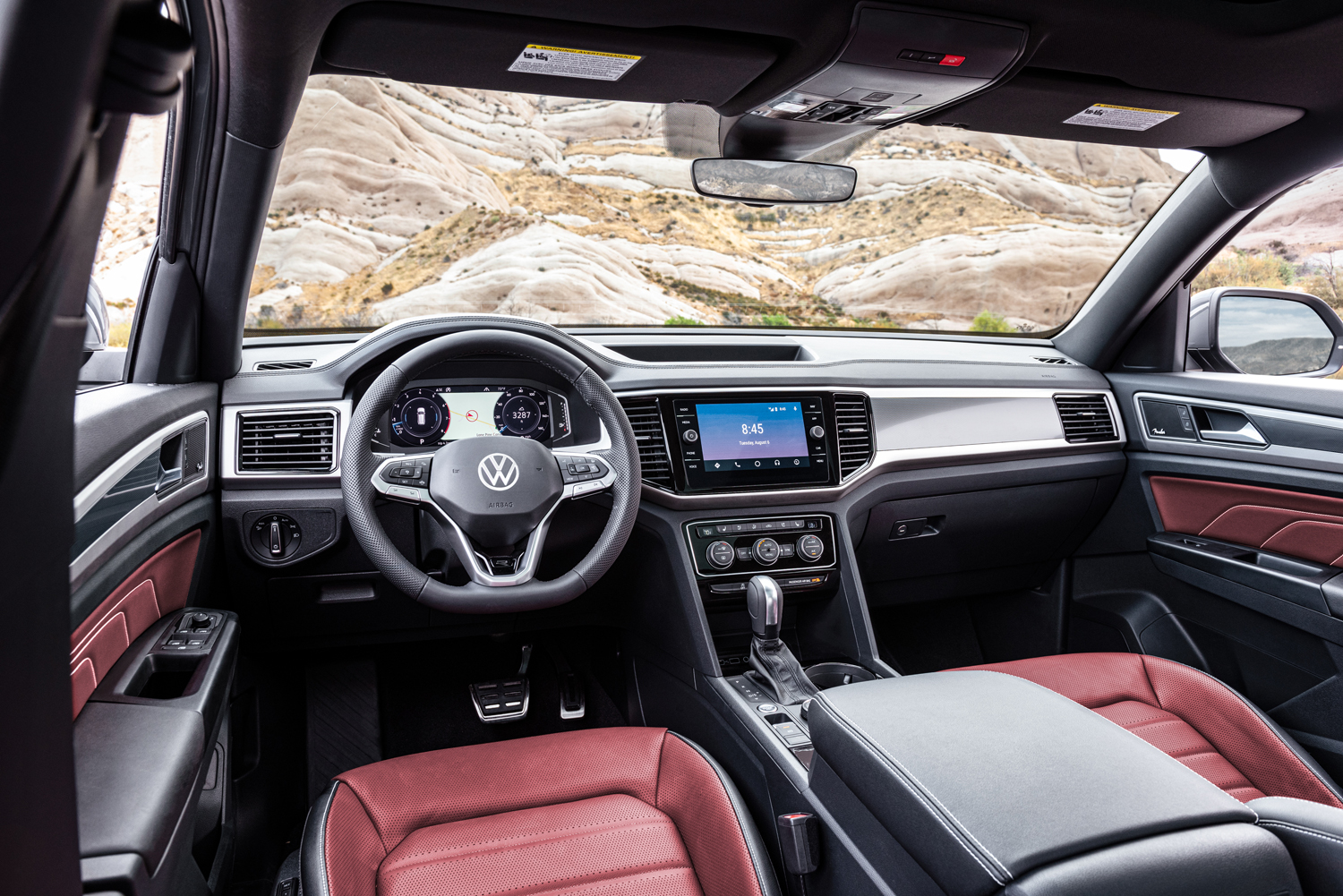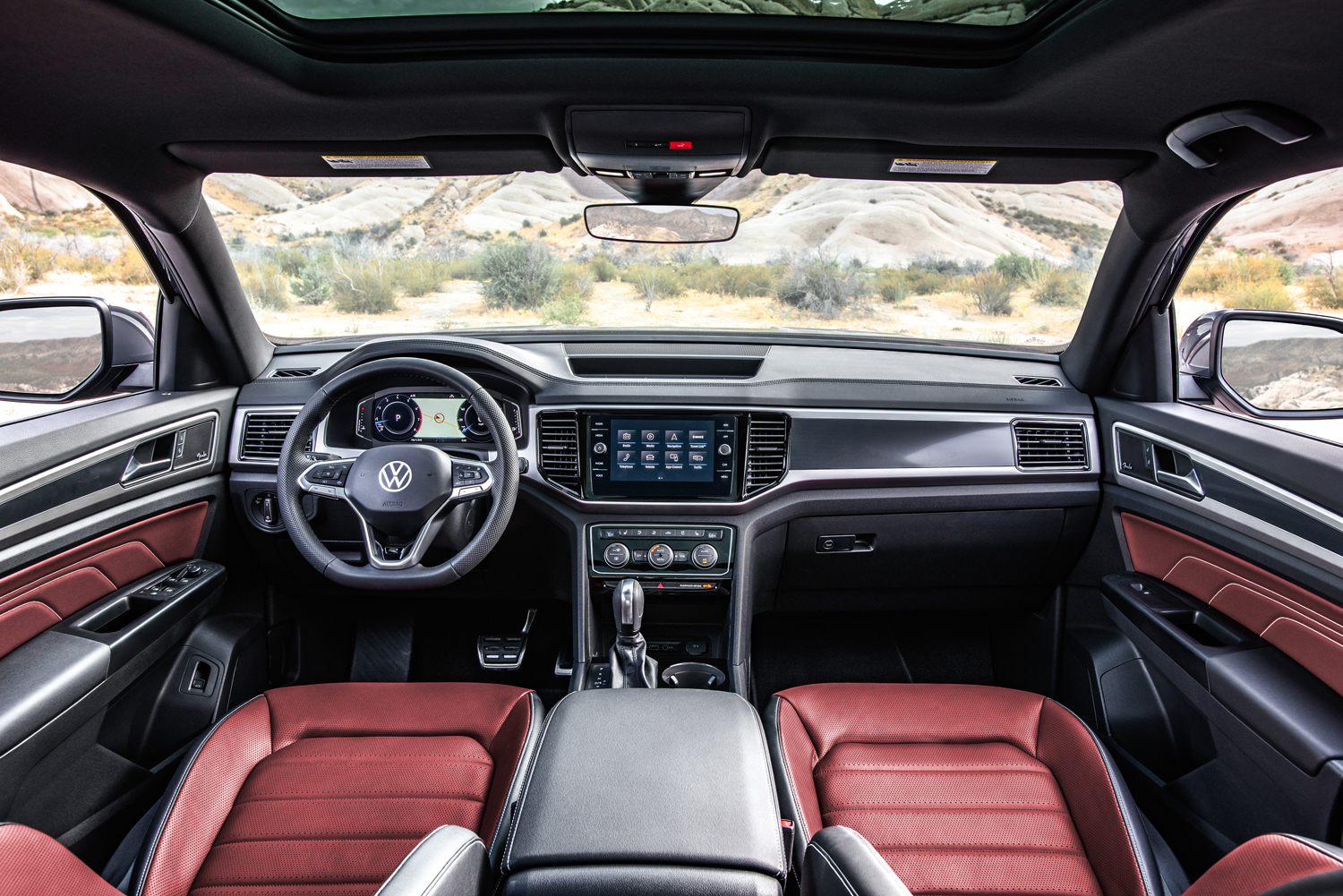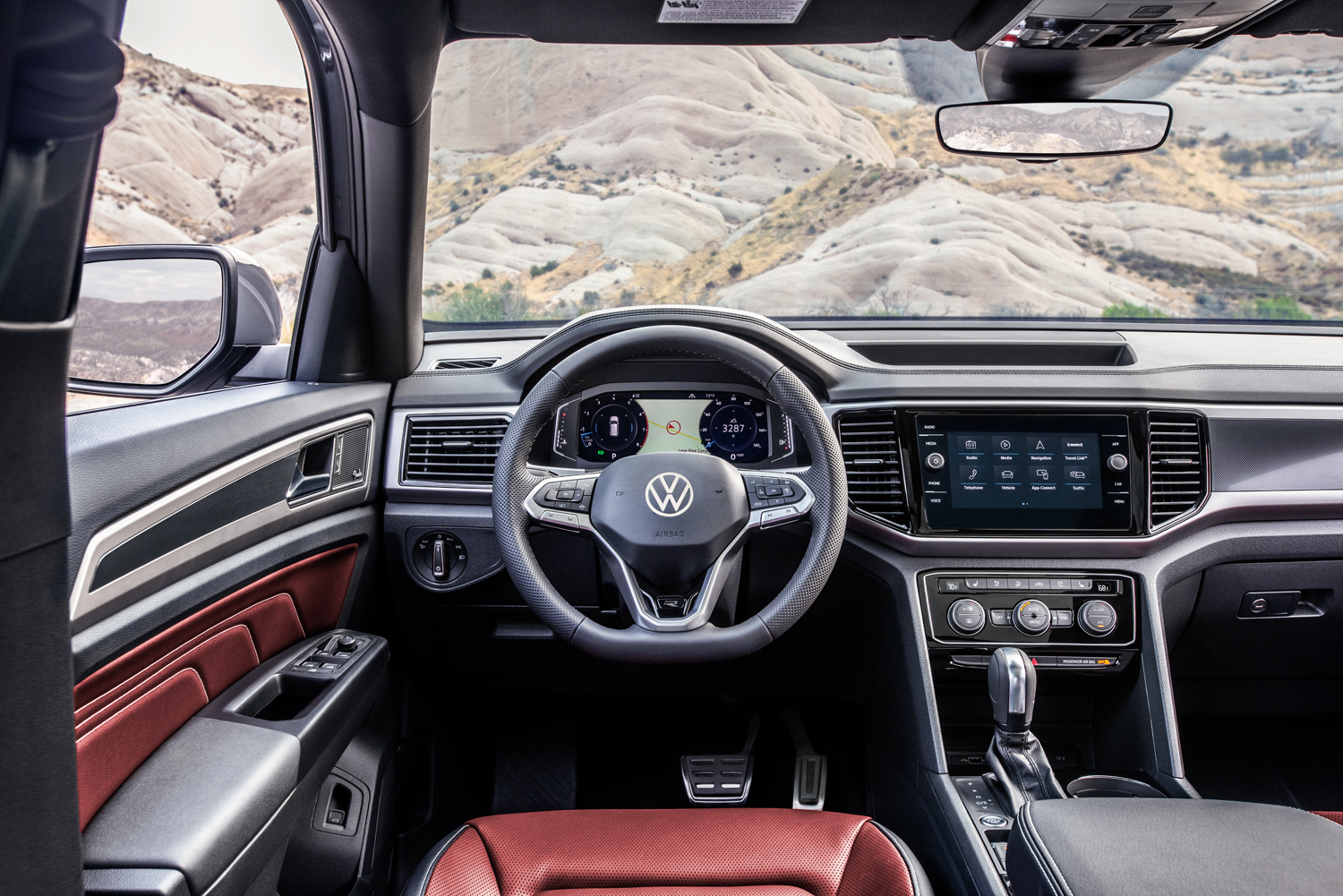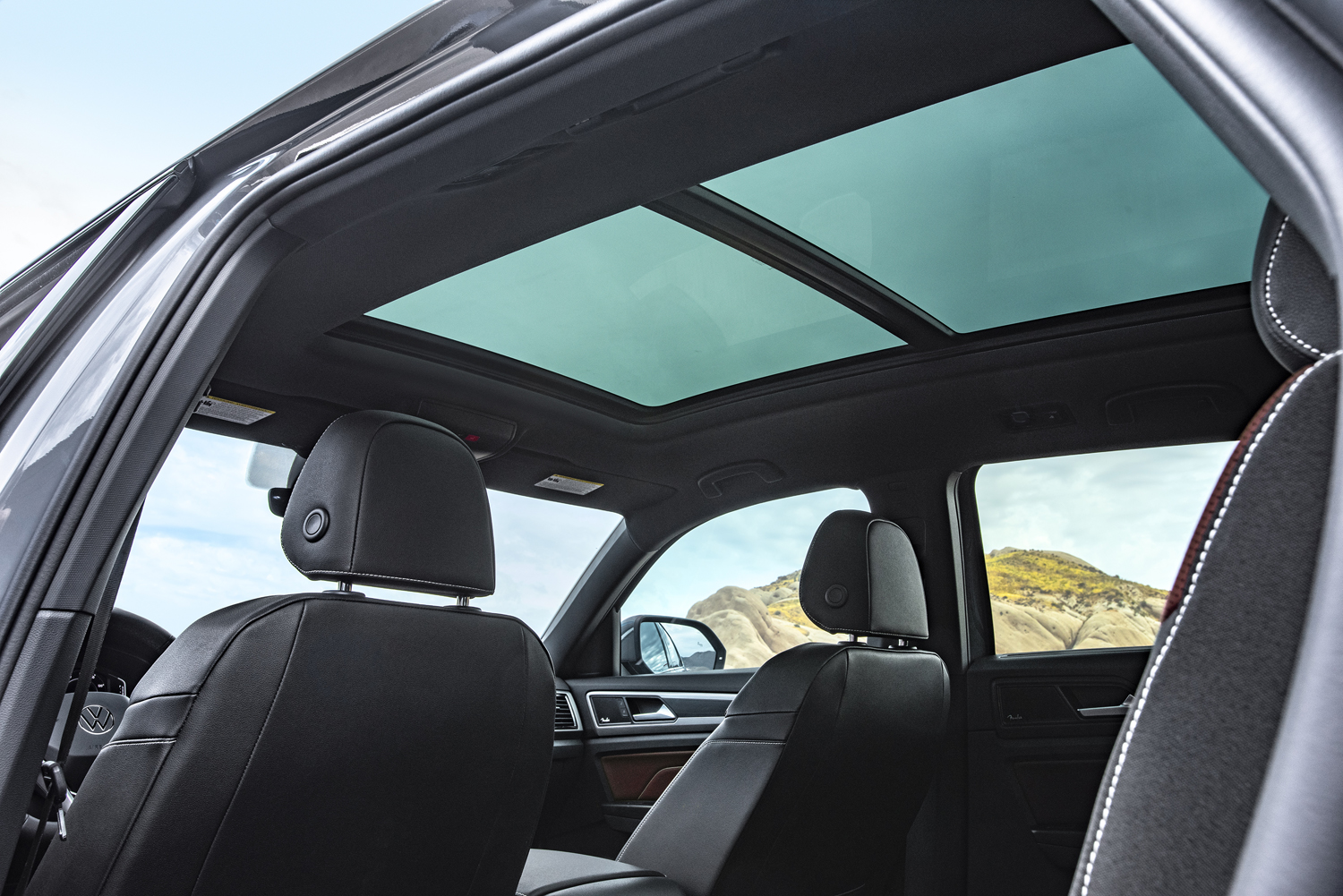American car buyers have an insatiable appetite for crossovers and SUVs, and Volkswagen wants to give them what they want. The German firm has introduced a high-riding five-seater model called the Atlas Cross Sport that fills the gap separating the Tiguan from the Atlas. It’s scheduled to arrive in showrooms across the nation in early 2020.
On paper, the new Cross Sport is a smaller variant of the Atlas with fewer seats. Both models ride on the same basic platform, and their wheelbase is identical, but the Cross Sport is 2.8 inches shorter than the regular Atlas. It offers 40.3 cubic feet of trunk space with five passengers on board, and 77.8 cubes with the rear seats folded flat.
Measurements are only part of the story, however. While the two models share many components under the sheet metal, the five-seater wears a stylish, less angular design characterized by a three-slat grille that stretches into a pair of more expressive headlights, as well as Volkswagen’s new logo. Its roofline is much more rakish, and it flows into a rear-end fitted with thin wrap-around lights that emphasize the Cross Sport’s width. All told, the design draws inspiration from the Cross Sport concept revealed in 2018. See? It’s not merely a shrunken Atlas.
On paper, the new Cross Sport is a smaller variant of the Atlas with fewer seats. That’s only part of the story.
Select trim levels come with the digital, driver-configurable instrument cluster we loved when we drove the seven-seater Atlas. Buttons on the steering wheel let drivers select the information displayed in their line of sight. Volkswagen’s Car-Net infotainment system, which received comprehensive updates for the 2020 model year, is also part of the package, while a wireless smartphone charger allows motorists to leave their charging cord at home.
Technology isn’t limited to the features that make driving or riding in the Cross Sport more convenient. The list of standard electronic driving aids include forward collision warning, autonomous braking, blind-spot monitoring, and rear traffic alert. Adaptive cruise control with a stop-and-go-function, traffic jam assist, and dynamic road sign display are offered on more expensive trim levels. Those last two are new additions to Volkswagen’s tech roster. The first one assists the driver in a traffic jam at up to 37 mph by keeping the Atlas centered in its lane, and maintaining a preset distance between it and the car ahead. The second one displays traffic signs in the instrument cluster and on the touchscreen.
Buyers have two engines to choose from. The entry-level unit is a turbocharged, 2.0-liter four-cylinder that delivers 235 horsepower and 258 pound-feet of torque when slurping premium unleaded. The upmarket alternative is a 3.6-liter V6 that puts 276 horses and 266 lb.-ft. of twist under the driver’s right foot. An eight-speed automatic transmission comes standard regardless of how many cylinders are under the hood, and Volkswagen’s winter-defeating 4Matic all-wheel drive system is offered at an extra cost.
Volkswagen invested $340 million to build the Atlas Cross Sport alongside the seven-seater model and the recently updated Passat in Chattanooga, Tennessee. The lineup is broken down into no less than eight trim levels called S, SE, SE w/Tech, SE w/Tech R-Line, SEL, SEL R-Line, SEL Premium, and SEL Premium R-Line. Pricing information will be released in the weeks leading up to its launch, which is scheduled for spring 2020.
